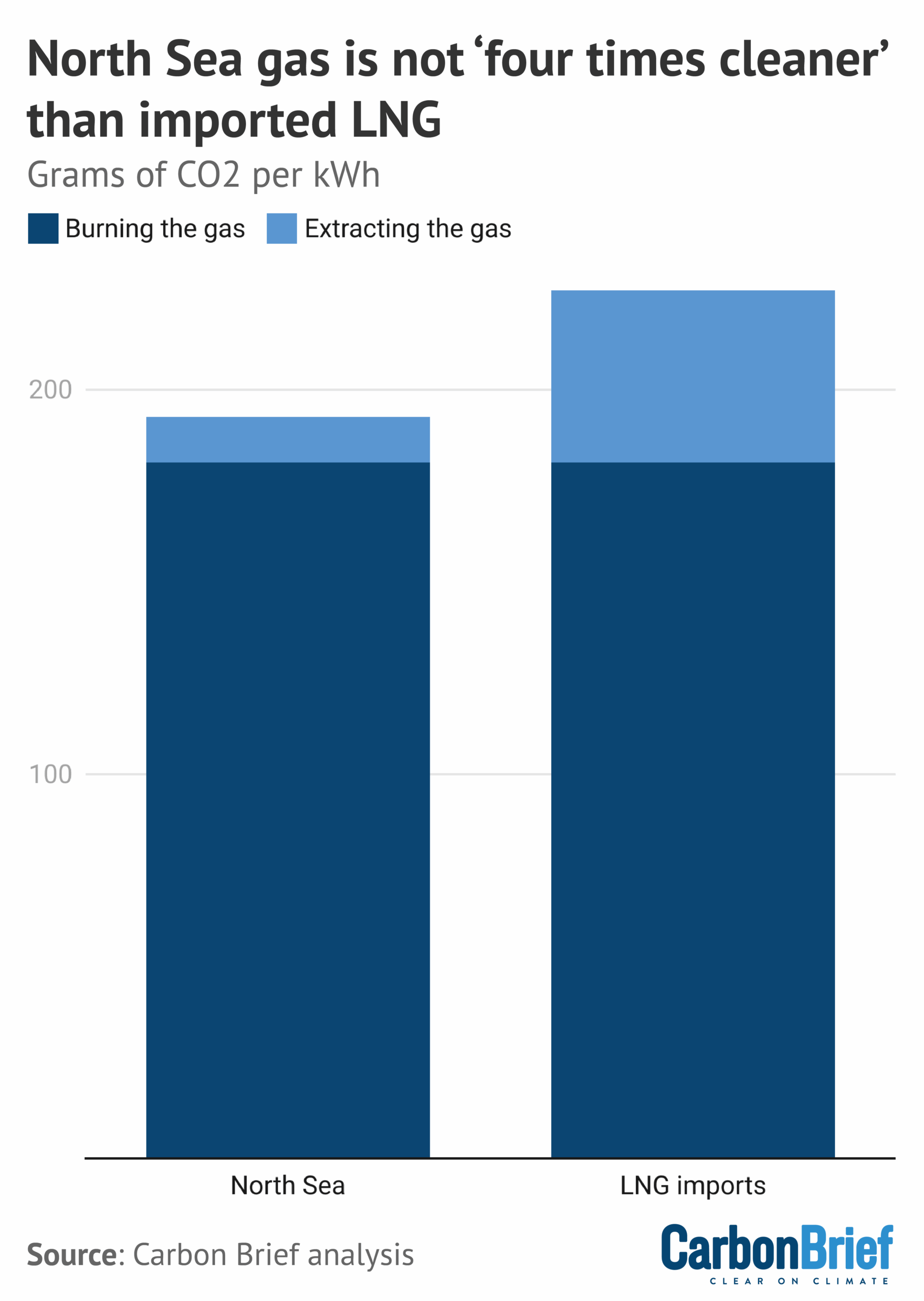
Factcheck: North Sea gas is not ‘four times cleaner’ than LNG imports
Multiple Authors
09.05.25Multiple Authors
05.09.2025 | 10:30amA claim that UK gas produced in the North Sea emits “four times” less carbon dioxide (CO2) than imported liquified natural gas (LNG) featured prominently in both the Guardian and the Daily Telegraph this week.
It came after Conservative leader Kemi Badenoch announced a pledge to drill “all” the remaining oil and gas in the North Sea, reigniting debates about new fossil-fuel production in the UK.
The claim that “UK gas is almost four times cleaner” than LNG imports was first made by a North Sea Transition Authority report in 2023 and is often repeated by senior Conservative politicians, as well as other public figures.
However, this figure is highly misleading.
It only refers to the emissions that come from the process of extracting and delivering the gas, which are much smaller than those from burning it.
When both extraction and burning of the gas are taken into account, CO2 emissions from UK production are only around 15% lower than those from LNG imports, Carbon Brief analysis shows.

Focusing on LNG imports alone is also misleading.
Official data shows that, from January to June 2025, the majority of UK gas imports came via pipeline from Norway.
Over this period, the UK imported 156,599 gigawatt hours (GWh) of gas from Norway via pipeline, the data shows. Its total LNG imports from all countries came to 82,378GWh.
An analysis published in 2022 found that, on average, emissions from extracting and processing gas in the UK North Sea are nearly three times higher than those from Norwegian production.
Previous analysis from the Climate Change Committee found that there is a small emissions “advantage” when UK oil and gas production is compared to the global average.
However, the CCC added that this emissions advantage would be wiped if increased production in the UK boosted global gas demand even fractionally, because it would lead to higher overall fossil-fuel use.
The UN Emissions Gap Report in 2023 said that the coal, oil and gas extracted over the lifetime of producing and under-construction mines and fields as of 2018 “would emit more than 3.5 times the carbon budget available” for meeting the Paris Agreement’s aim of keeping temperatures at 1.5C above pre-industrial levels.
The world’s highest international court recently gave a landmark opinion stating that granting new fossil-fuel exploration licences “may constitute an internationally wrongful act” attributable to the state issuing them.
This is based on a wide body of scientific evidence on how fossil-fuelled climate change has endangered people and ecosystems.
Output from the North Sea is already in decline. Oil production peaked in 1999, while gas production in the UK continental shelf peaked in 2000.
After decades of drilling, the majority of reserves left in the North Sea is oil. Contrary to claims that it would increase energy security or bring down bills to issue new licences, around 80% of oil produced in UK waters is currently exported to the global market.





